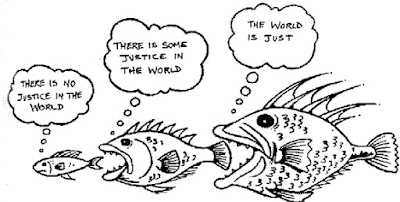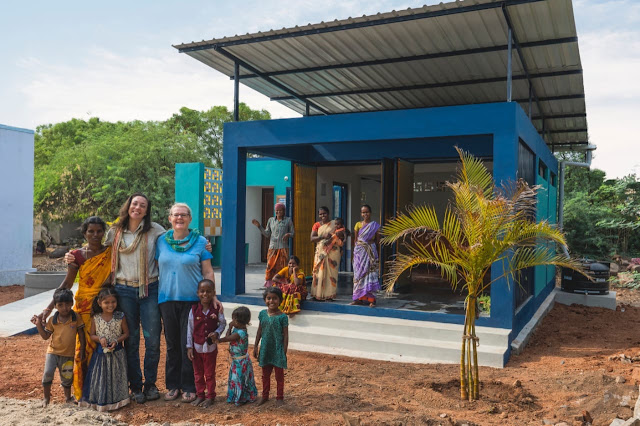I WEAR MY HEART ON MY SLEEVE
“Responsibility I
believe accrues through privilege. People like you and me have an unbelievable
amount of privilege and therefore we have a huge amount of responsibility. We
live in free societies where we are not afraid of the police; we have extraordinary
wealth available to us by global standards. If you have those things, then you
have the kind of responsibility that a person does not have if he or she is
slaving seventy hours a week to put food on the table; a responsibility at the
very least to inform yourself about power. Beyond that, it is a question of
whether you believe in moral certainties or not.”
―
―
WARNING: grammatical
errors and stream of consciousness ahead; this is not a cohesive essay (sorry).
The past couple of weeks I’ve hit the stage where the amount
of privilege I have in my position starts to make me extremely emotional…tears come
on a day to day basis now with overwhelming thoughts coming to mind about leaving,
saying goodbye to the children and people we are working with day in day out.
There have been many an article, editorial, and academic
paper written on the effects of western people coming into and working in
developing areas of many different countries and I am always acutely aware that
while my world view is changing, so too is the people’s I’m working with. My colleague and I had a conversation about
this the other day on our car ride home and much like the hour-long car rides
to and from school as a child and teenager these car rides are our time to digest
and discuss life and what’s happened on site and in the village that day. We get to use each other as a sounding board and
barometer while we digest the intense emotions and situations we’ve experienced
on a day to day basis.
One of the things we try to ensure that we are NOT doing, is
being evangelical in our approach to how we integrate socially and as architects
– ensuring that we are NEVER saying our culture or methodology is better for ANY reason, because
it most certainly is NOT. Ensuring that
when people say things like, “white people look better in sarees,” we are quick
to disagree diplomatically with them and ensure that they understand that we do
not believe this or feel this way. Other times there are things said, “black is bad and
white is good.” It is overwhelming to hear this and when people say these things with the
little English they speak it can bring up emotions of guilt, anger, and the need to disagree as these are the few words that they know and can say with
comprehension. We have had to wrap our heads around this on a daily basis and it can be extremely overwhelming
to have people tell you they think you are better than them because of your skin colour. It is so
entrenched in their socio-political beliefs. It means that whatever we say or
do can be interpreted as better. This is confronting,
overwhelming and plays itself out in someway through most of our daily interactions. It is to be placed on a pedestal and with
that comes overwhelming responsibility and thus we have had and still have to be acutely aware of our how our behaviour and actions might be interpreted while still remaining focused on the job at hand.
On top of the above, there is also a belief and cultural saying here that says, “a
guest is to be treated the same as God,” and this is something I will take back
with me because it’s a lovely tradition and a great way of ensuring hospitality
is expressed through actions. These two systemic beliefs when combined with the caste system here create a very
hierarchical dynamic that my colleague and have broken down in places that it's acceptable and possible to do over the course of this project. We have done so by
showing equal respect through our actions such as working as equals on site,
getting workers cups of water as they would never stop to take a water break, listening and learning their local language, and following etiquette when and where we know about it like saying thank you to everyone on site before leaving to show we 'see' each one of them and the hard work they are doing, etc. Genuine eye contact and a handshake are universal. There are many more ways that we attempt to
show that we view them as equals while also treading a fine line of cultural
appropriateness that must be maintained.
It’s a fine balance that has the scales shifting daily and sometime
hourly. We have to work to bring them
back into relative balance and these are the considerations that take up much
of our emotional and professional space.
The reason these final weeks have come to an emotional head is not
just because we are placed on this pedestal but actually because we’ve broken a few barriers and thus moved back down from this position, because we have made deep and meaningful friendships
that we have to leave and I know that the same strong feelings of leaving these
amazing people, and particular the women that we’ve bonded with will be felt by
these women we are leaving. And each of
our respective lives will go back to ‘normal’so-to-speak and this will require some
grieving on all our parts.
I have felt this before in doing this type of work and I have
warned many a Bower Studio student or fellow first-time volunteer about the
grieving and adjustment period that happens when we return to our country of origin. And it doesn’t mean I can circumvent those
feelings myself; they are coming and I already know that these feelings will be
much more intense than ever before because this time I’ve worked with these
amazing clients, engineers, drivers, and end users every day for a full 6
months. I have become a part of their lives and they a part of mine. Mine will
become a chapter of memories of a distant land where I have become a part of
their day to day lives and will soon erase myself from. But for them, our leaving will be like an old
polaroid picture that will have me clearly in it until I fade away as if this photo
were left in the sun soon to become blurry and vague. Sadly and initially our
spirits will still be felt there and like any loss there will be times where we
both wake up hoping the others are there or that they will show up and we won’t
and the young children who get excited and run to see us after school is over
will come to an empty and quiet verandah.
A verandah that saw our teacher’s wedding, a verandah that saw so many
of our conversations, our ups and downs, and all the stories we’ve experienced over
the past six months. The sweat and love
and tears and challenges are all there and have created a bond that will not
subside…
The saying, “If I could have been a fly on that wall,” comes
to mind. And I am so thankful to have
been an Australian architect ‘fly’ for this project. This is a project I will return to visit because
I want to see these people again and I don’t want to leave them even though I know
I have to return to what I’ve known as reality prior to leaving the shores of
Australia.
As you will see in the images below, this sense of
responsibility and privilege that Noam Chomsky speaks of in the starter quotation was intrinsic to my world view at
the age of 17 and still is an incredibly strong motivator for all my decisions
in this life and in particular my career.
And so I return in thought to one of my original posts, I am reminded that while I want to and have brought on metamorphosis and person growth here I am also maintaining my core beliefs which make me who I am and why I care about others so much.





Comments
Post a Comment